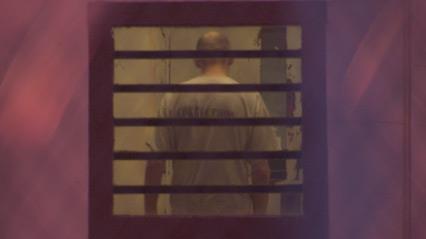Dir/scr: Eugene Jarecki. U.S. 2011. 110mins

Eugene Jarecki, the veteran documentary filmmaker (Why We Fight, The Trials of Henry Kissinger), presents a comprehensive and damning critique of America’s long-running “War on Drugs” in his latest project The House I Live In. While this investigative chronicle begins with a more personal approach than Jarecki’s previous nonfiction films—and takes too long to gather momentum—the film eventually comes around with a stirring and startling argument: As Baltimore journalist and The Wire creator David Simon says, “What drugs haven’t destroyed the War on Drugs has.”
Early sequences make a strong case for the unethical nature of harsh mandatory sentencing guidelines.
In a pre-title credit sequence, Jarecki initially offers his own family’s persona history—as Jews who fled persecution in Russia and Germany—as a curious starting point. While the context might initially appear less than relevant, by film’s end, the Holocaust provides for a provocative point of reference for the US’s unfair, unjust and unceasing cycle of demonisation and incarceration of its lower classes.
As another entry into the subject matter, Jarecki also presents the story of his childhood nanny, ironically named Nannie, whose own son, it is slowly revealed, died due to drug related causes. But while these stories might justify Jarecki’s personal investment, it is the film’s more broad-reaching contemporary and historical investigations about America’s policies of punishment over prevention that hold greater sway.
Early sequences make a strong case for the unethical nature of harsh mandatory sentencing guidelines, for example, and the way that law enforcement officials are given incentives to catch lots of low-level non-violent drug offenders rather single major suppliers or big-time dealers. The film also attacks the rise of the prison-industrial complex, which continues to create more prisons, and in the eyes of one observer, if a new prison is built, local officials need to find people “to fill the beds.”
Another of the film’s strongest arguments deals with the disparity between court sentences for powder cocaine (seen as a white person’s drug) and crack cocaine, where the latter was long judged 100 times more severe. (In 2010, the government dropped the ratio from 100:1 to 18:1.)
Jarecki finds an unlikely chorus of voices critical of current drug policies, from a “Law & Order” Corrections Officer, who believes that drug-related criminals are “paying for our fear instead of for the crime” to Abraham Lincoln historian Richard Lawrence Miller, who really kicks the film’s argument into high gear. Miller exposes an eye-opening history of using drug policies to oppress minority populations in America, whether the way opium was criminalised to get rid of the Chinese in California, or the way cocaine and hemp were made illegal at other moments to vilify blacks and Mexicans, respectively.
Miller offers a five-point “chain of destruction”: identification; ostracism; confiscation, concentration; annihilation—which as used by Jarecki, eerily parallels the way America has fought its war on drugs, which according to the film, ultimately amounts to a war on poor people. As David Simon, who offers up some of the film’s most inflammatory comments, notes, the War on Drugs is essentially getting rid of 15% of the population. As he says, “You might as well just say, ‘Kill the poor.’”
Assured of international broadcast spots—The House I Live In was produced in part by British and German broadcasters—the documentary could also see some limited big-screen time where social issue cinema is welcomed.
Production companies: BBC Storyville, ZDF, ITVS
International sales: Charlotte Street Films
Producers: Sam Cullman, Christopher St. John, Eugene Jarecki, Michelle Shopsin
Executive producers: Joslyn Barnes, Nick Fraser, Danny Glover
Cinematography: Sam Cullman, Derek Hallquist
Editor: Paul Frost
Music: Robert Miller
Main cast: Shanequa Benitez, Mark Bennett, David Simon, Charles Bowden, Richard Lawrence Miller






![The Brightest SunScreen[Courtesy HKIFF]](https://d1nslcd7m2225b.cloudfront.net/Pictures/274x183/3/5/0/1448350_thebrightestsunscreencourtesyhkiff_312678.jpg)














